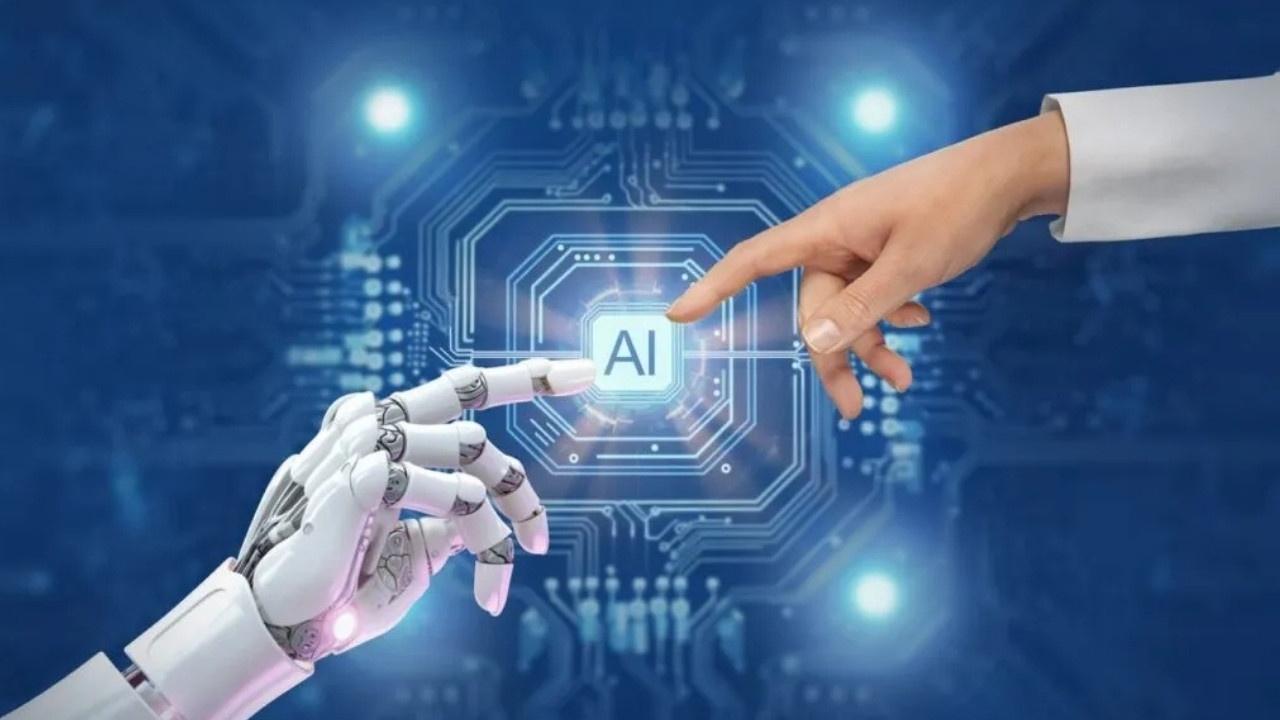
Post by : Anees Nasser
The landscape of healthcare is undergoing a significant transformation fueled by artificial intelligence. What was once confined to clinical settings is now penetrating homes via smart devices, digital health monitors, AI-infused wearables, and connected wellness systems. By 2025, the applications of AI in healthcare are no longer futuristic notions but everyday realities that impact individuals' eating, sleeping, moving, and overall well-being.
This evolution is apparent in urban areas, small communities, and even rural settings. People who previously relied on traditional medical check-ups are now using AI-powered solutions to monitor their vital signs, manage ongoing health issues, assess sleep patterns, and receive tailored advice based on their body's specific needs. The approach to healthcare has become increasingly predictive, preventive, and personalized.
Artificial intelligence is redefining wellness, merging scientific accuracy with user-friendly technology.
AI-driven health devices don't replace medical professionals; they enhance their capabilities. For households, they provide insight; for patients, comfort; for the elderly, security; for fitness enthusiasts, data-driven evolution; and for communities, a commitment to healthier living.
Traditionally, health monitoring was relegated to annual check-ups and occasional visits. Today, smart devices facilitate a continuous flow of health insights. With AI, routine monitoring has shifted from hospitals to homes, enhancing accessibility to information about one’s physical and emotional health.
Wearable AI models assess movements, pulse rhythms, sleep patterns, and stress metrics to deliver precise insights about bodily functions. For instance, users can now wake up to reports detailing sleep quality, recovery tips, and wellness indicators that guide their activities throughout the day.
Devices such as AI-enabled thermometers, blood pressure monitors, glucometers, oximeters, and ECG patches empower families to track key health metrics instantly, enabling timely interventions and reducing unnecessary anxiety.
The move towards AI integration marks a significant leap in personalized healthcare services.
The most significant transformation AI has introduced is the concept of personalisation. Previously, health advice relied on broad-based recommendations. Now, with the understanding that each individual is unique, AI modifies this framework.
By analyzing distinct behavioral patterns, including sleep habits, physical activity, heart rate variations, dietary choices, and stress factors, AI tailors suggestions that resonate with an individual’s lifestyle and health profile.
This tailored approach fosters a sense of empowerment among users, promoting a more thoughtful and personalized health journey.
AI personalisation is reshaping how individuals manage their diet, sleep, workouts, relaxation, and recovery.
Sleep has always been a perplexing element of health. Many people underestimate its quality, often equating hours in bed with restorative rest. AI-enhanced sleep trackers are changing this narrative.
These devices provide in-depth analysis of sleep cycles, identifying light sleep, deep sleep, REM stages, and breathing patterns, helping users uncover why they wake up feeling fatigued or unproductive.
This advancement emphasizes sleep as a vital aspect of wellness, making individuals more conscious of how lifestyle choices, like screen time, caffeine intake, and meal timing, impact their sleep quality.
Thanks to AI, sleep is now an actionable area of health management.
The fitness sector has experienced a remarkable overhaul due to AI. Gone are the days of one-size-fits-all workout plans. Today’s smartwatches, fitness bands, and home exercise systems utilize machine learning to interpret movement, effort levels, recovery needs, and performance capabilities.
These technologies generate personalized fitness guidelines, advising on the best intensity and duration of activities tailored to how the body responds. They can detect signs of overtraining, recommend recovery times, and even alert users if their heart rate exceeds safe thresholds.
This data-driven approach makes exercise safer and smarter, accommodating all levels from novices to seasoned athletes.
AI tools are essential in managing chronic diseases such as diabetes, hypertension, and asthma. These conditions demand consistent monitoring and lifestyle management, which AI devices facilitate.
Smart glucometers connect blood sugar readings with dietary habits, activity, and sleep, while blood pressure monitors track fluctuations and notify users of any anomalies. Asthma patients benefit from smart inhalers, and wearables can detect irregular heart rhythms.
This proactive approach to chronic disease management supports individuals in recognizing harmful behaviors while also informing timely medical decisions.
AI has redefined care for older populations. As age increases susceptibility to sudden health issues, families often find it challenging to monitor their senior loved ones. AI-powered devices provide a solution.
Wearables designed to track vital signs, mobility, and fall incidents allow real-time monitoring from afar, triggering alerts during emergencies.
For seniors living independently, these gadgets enhance feelings of security, while providing peace of mind for families and ongoing data for healthcare professionals.
One of the exciting advancements in AI wellness is its application in nutrition. Diet applications now leverage AI to evaluate dietary logs, gut health indicators, and metabolic information, crafting custom meal plans.
Rather than generic diets, individuals receive tailored food suggestions that consider energy levels, fitness ambitions, and personal health circumstances.
Mental health has gained renewed focus through AI wellness platforms. These sophisticated systems assess stress responses and emotional states via physiological changes.
AI applications promote mindfulness, relaxation techniques, and emotional tracking, identifying early signs of burnout or anxiety.
AI’s capabilities in diagnostics are evolving. AI algorithms can analyze medical images and genetic data promptly with remarkable accuracy, facilitating early diagnosis.
Despite rapid advancements, access to AI health tools is inconsistent. Urban areas often adopt new technologies swiftly, but rural communities struggle with cost and access to connectivity.
As AI permeates healthcare, issues surrounding data privacy emerge. Users desire personalized insights with assured data protection.
Over the next decade, the integration of AI in personalized health will drastically deepen, with anticipatory health models able to predict ailments before they manifest.
AI’s influence on healthcare and wellness is transformative. By equipping individuals with tools for proactive health management, AI constructs a future where well-being is non-linear, personalized, and constant.
This information serves educational purposes and should not replace professional medical advice. Always consult healthcare providers for tailored guidance.










Mattel Revives Masters of the Universe Action Figures Ahead of Film Launch
Mattel is reintroducing Masters of the Universe figures in line with its upcoming film, tapping into

China Executes 11 Members of Criminal Clan Linked to Myanmar Scam
China has executed 11 criminals associated with the Ming family, known for major scams and human tra

US Issues Alarm to Iran as Military Forces Deploy in Gulf Region
With a significant military presence in the Gulf, Trump urges Iran to negotiate a nuclear deal or fa

Copper Prices Reach Unprecedented Highs Amid Geopolitical Turmoil
Copper prices soar to all-time highs as geopolitical tensions and a weakening dollar boost investor

New Zealand Secures First Win Against India, Triumph by 50 Runs
New Zealand won the 4th T20I against India by 50 runs in Vizag. Despite Dube's impressive 65, India